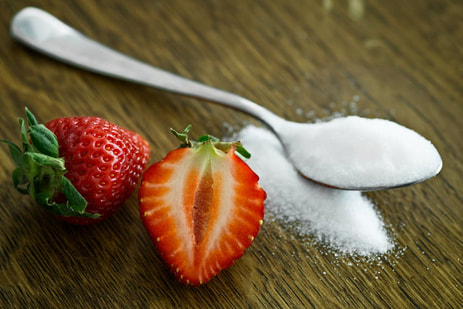|
What exactly is aspartame? Aspartame is probably the most common artificial sweetener in use today. You know it under its brand names such as NutraSweet and Equal. Companies use this substitute in foods and beverages because it is about 200x sweeter than regular sugar, so much less is needed to give the same level of sweetness. This inevitably lowers the calories in the food or beverage, which has been thought to help individuals with obesity who are trying to lose weight and wean themselves off of sugar. (American Cancer Society) However, a team of researchers has found a possible explanation for why the use of sugar substitutes might not actually promote weight loss at all. Aspartame and weight loss In a report published online in Applied Physiology, Nutrition and Metabolism, researchers from Massachusetts General Hospital (MGH) show how the aspartame breakdown product (phenylalanine) interferes with the action of an enzyme previously shown to prevent metabolic syndrome. Their research also shows that mice receiving sugar substitutes in their drinking water gained more weight and developed other symptoms of metabolic syndrome compared to the mice lacking aspartame in their diets.
Dr. Richard Hodin of the MGH Department of Surgery explains, “We found that aspartame blocks a gut enzyme called intestinal alkaline phosphatase (IAP) that we previously showed can prevent obesity, diabetes and metabolic syndrome; so we think that aspartame might not work because, even as it is substituting for sugar, it blocks the beneficial aspects of IAP.” Phenylalanine is known to inhibit the action of IAP and is produced when aspartame is digested – this led researchers to investigate whether its inhibitory properties could explain aspartame’s reverse effects on weight loss. How did researchers simulate the effects of aspartame? To better represent how humans consume artificially sweetened beverages or other products containing aspartame, researchers used four groups of mice: two groups were fed a normal diet, one receiving drinking water with aspartame, the other receiving plain water. The other two groups were fed a high-fat diet, along with either aspartame-infused or plain drinking water. The mice in the normal diet group that received the aspartame drinking water consumed an amount equal to an adult who drinks about three and a half cans of diet soda per day. Aspartame-receiving mice in the high-fat group consumed the equivalent of almost two cans.At the end of the study, there was little difference between the weights of the two groups fed a normal diet; however, aspartame-receiving mice in both groups had higher blood sugar levels which suggests glucose intolerance. Additionally, both aspartame-receiving groups had higher levels of the inflammatory protein TNF-alpha in their blood, which suggests the same kind of inflammation associated with metabolic syndrome. Our findings regarding aspartame’s inhibition of IAP may help explain why the use of aspartame is counterproductive,” says Hodin, “While we can’t rule out other contributing mechanisms, our experiments clearly show that aspartame blocks IAP activity, independent of other effects.” So, I should I avoid aspartame? While sugar substitutes such as aspartame can reduce calories, there has been some evidence that shows they actually can make you hungrier and may be associated with increased calorie consumption. Dr. Hendrick and the team at Medical Metabolic Specialists can help you better understand the effects of aspartame and how to utilize it for healthy weight loss or weight stabilization rather than weight gain. For more information, please do not hesitate to call us at 970-980-6024 or fill out our contact form. Original Source: Science Daily Comments are closed.
|
MMSMedical Metabolic Specialists, located in Fort Collins, Colorado, is dedicated to using the latest scientific techniques to create a comprehensive, individualized. lifelong weight management program to improve your overall health. Archives
October 2023
Categories
All
|




 RSS Feed
RSS Feed